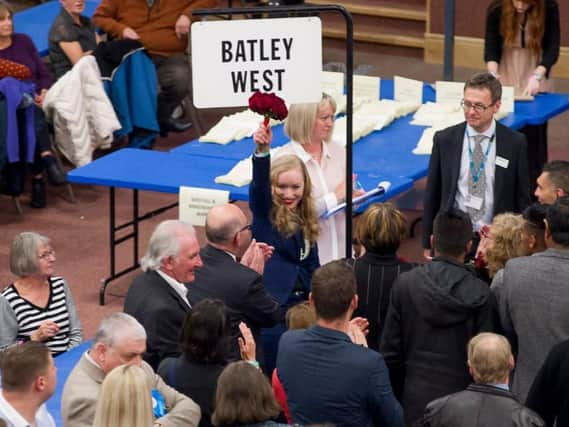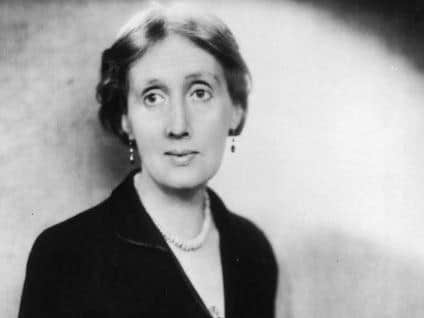Ex-Batley councillor's Leeds Trinity University PhD research on Virginia Woolf's relevance to LGBTQ+ rights, Black Lives Matter and #MeToo


She was a defining voice of 20th century modernist literature and continues to be a lauded as a pioneer of feminist discourse.
Now a former Yorkshire councillor’s passion for the work of Virginia Woolf and how the author’s political activism draws parallels with modern day issues is the inspiration behind her research.
Advertisement
Hide AdAdvertisement
Hide AdMarielle O’Neill has embarked on an individual PhD thesis at Leeds Trinity University after successfully being awarded a full-time funded studentship.


The 32-year-old, from Batley in West Yorkshire, is studying how Woolf’s political activism engages with contemporary feminist and anti-fascist political movements, as well as LGBTQ+ rights, the Black Lives Matter and #MeToo movements, and gender fluidity debates.
Woolf, regarded as one of the 20th century’s most influential modernist authors, was heavily involved in the Labour Party, Fabian Society and Women’s Co-Operative Guild, campaigning on issues including education, women’s rights, anti-colonialism and the anti-war agenda.
Marielle says: “I have previous experience in local government and, like Woolf, have been active with the same organisations so hope to marry my professional career with my passion for the author.
Advertisement
Hide AdAdvertisement
Hide Ad“A key part of my research is to make Woolf contemporary to younger generations as I feel her work is especially relevant to today and the issues that are most prevalent in our society.
“I am really excited and feel privileged to have the opportunity to visit archives to see and study Woolf’s letters, diaries and manuscripts.”
Marielle, who plans to move into university teaching once she has completed her PhD, adds: “I feel honoured to have been awarded the PhD Studentship at Leeds Trinity. Without it I would not be able to afford to study full-time so I am extremely grateful to be able to study at a university that places such a positive emphasis on the wellbeing of its students at both an academic and personal level.”
The Rev Professor Jane de Gay, Professor of English Literature and a world-renowned Virginia Woolf expert, will be Marielle’s primary PhD supervisor.
Advertisement
Hide AdAdvertisement
Hide AdProfessor de Gay says: “I am delighted that Marielle has chosen to do her PhD at Leeds Trinity. Like Woolf, Marielle has a passion for social justice, which is very much part of the Leeds Trinity ethos.
“Marielle has also done sterling work with the Virginia Woolf Society of Great Britain during lockdown and she has a lot to offer our research culture. I am excited to see how her research develops.”
The PhD Studentships have been introduced to reflect the “continued emphasis on high quality research at Leeds Trinity University and have been appointed in its areas of research strength,” says the institution.
Marielle was a Batley West Labour councillor between 2015 and 2019, after being elected when her late father Peter O’Neill stepped down from local government.
Advertisement
Hide AdAdvertisement
Hide AdAmong other work, she also joined attempts to get Democrat Hillary Clinton into the White House in the 2016 US election, when she was one of 10 Young Fabian members chosen to help out and conduct research.
Woolf was born Adeline Virginia Stephen on January 25, 1882 in London and went on to write Mrs Dalloway (1925), To the Lighthouse (1927) and The Waves (1931) – which are “generally considered to be her greatest claim to fame as a modernist writer”, says the society.
Two talks to women’s colleges at Cambridge in 1928 led to A Room of One’s Own (1929), an extended essay about women’s writing, which is regarded as an important feminist text.
The author died in March 1941.